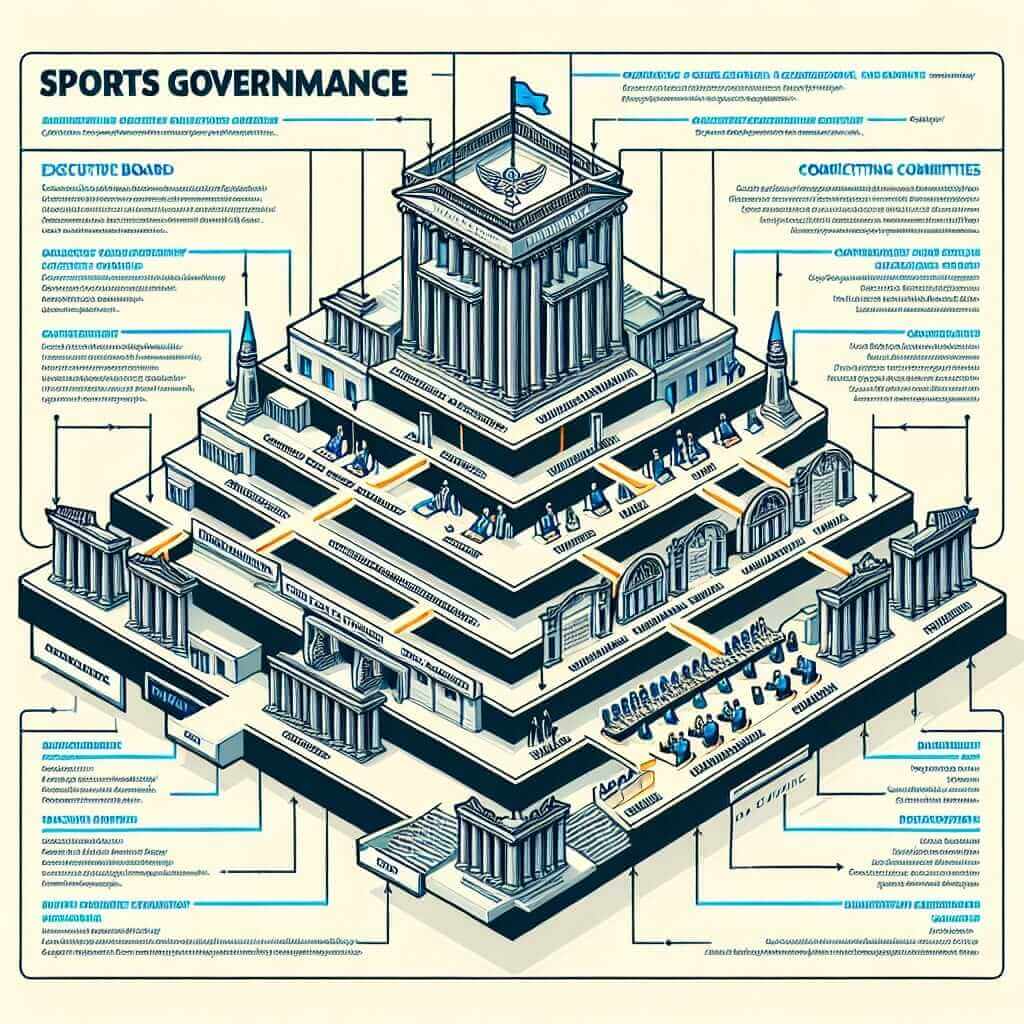As an IELTS teacher, I often find my students grappling with complex topics, and “sports governance” is no exception. This term, frequently appearing in IELTS reading materials and even writing tasks, can seem daunting at first glance. However, with a little guidance, it becomes much clearer. Let’s break down this crucial concept and equip you with the vocabulary and understanding to tackle it confidently in your IELTS exam.
Understanding Sports Governance
At its core, “sports governance” refers to the systems, regulations, and organizations that oversee and direct a particular sport or sporting organization. Think of it as the framework that ensures fair play, ethical conduct, and the overall well-being of a sport. This framework encompasses various aspects:
Key Elements of Sports Governance:
- Rules and Regulations: This involves establishing clear guidelines for how the sport is played, including everything from competition rules to equipment specifications. For instance, FIFA’s Laws of the Game dictate the rules of football globally.
- Organizational Structure: This defines how the governing body is structured, often involving a hierarchy of committees, boards, and decision-making processes. The International Olympic Committee (IOC) is a prime example, with its executive board and various commissions.
- Financial Management: Good governance demands transparency and accountability in handling financial resources, sponsorship deals, and revenue distribution.
- Dispute Resolution: Mechanisms like tribunals or arbitration panels are essential to address conflicts, doping violations, or disciplinary issues fairly and effectively.
- Stakeholder Engagement: This includes ensuring that the voices of athletes, coaches, fans, and other stakeholders are considered in decision-making processes.

Sports Governance in IELTS
Now, how does this translate to your IELTS exam?
Reading:
Expect to encounter texts discussing the governance of specific sports, challenges within organizations, or the impact of governance on athletes and competitions.
Example: An article might explore the governance structure of the International Cricket Council (ICC) and its role in promoting fair play in international cricket.
Writing:
You might be asked to write an essay analyzing issues within sports governance, such as corruption or lack of transparency, and propose solutions.
Example: “Many argue that sports organizations need greater transparency in their financial dealings. Discuss this view and give your own opinion.”
Speaking:
Be prepared to discuss your views on sports-related issues that touch upon governance, such as doping scandals or the role of technology in officiating.
Example: “Do you think athletes who violate doping regulations should be given a second chance?”
Tips for Success:
- Develop Your Vocabulary: Familiarize yourself with terms like “regulation,” “transparency,” “accountability,” “ethics,” and “integrity.”
- Stay Informed: Follow sports news to understand current events and issues related to sports governance.
- Think Critically: Develop your ability to analyze the strengths and weaknesses of different governance models.
Conclusion
Mastering the concept of “sports governance” is not just about memorizing definitions. It’s about understanding the complex interplay of rules, organizations, and ethics that shape the world of sports. By developing your vocabulary, staying informed, and thinking critically, you’ll be well-equipped to tackle any “sports governance” related question that comes your way in the IELTS exam.